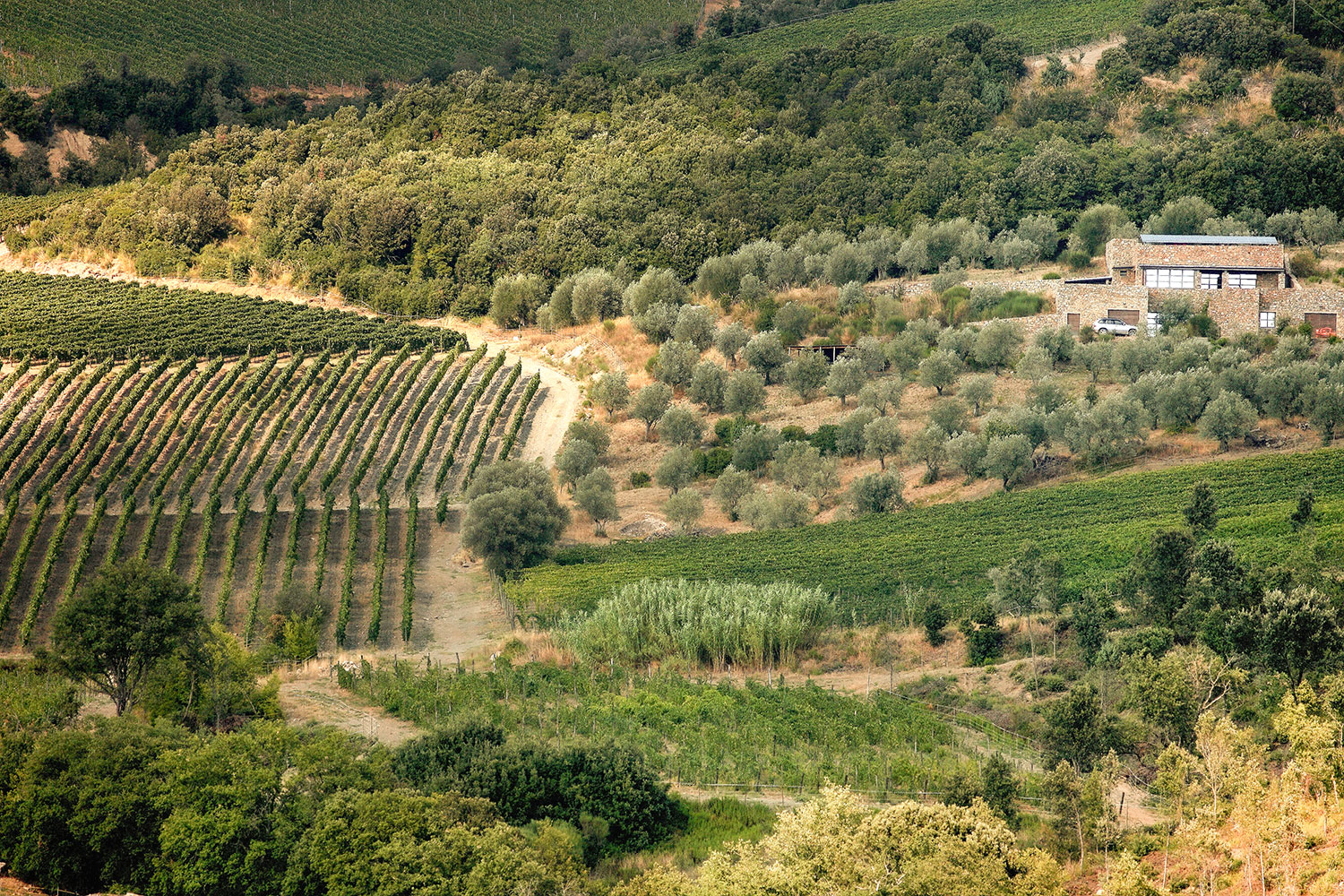Soil
There’s a rhythm underground — listen.
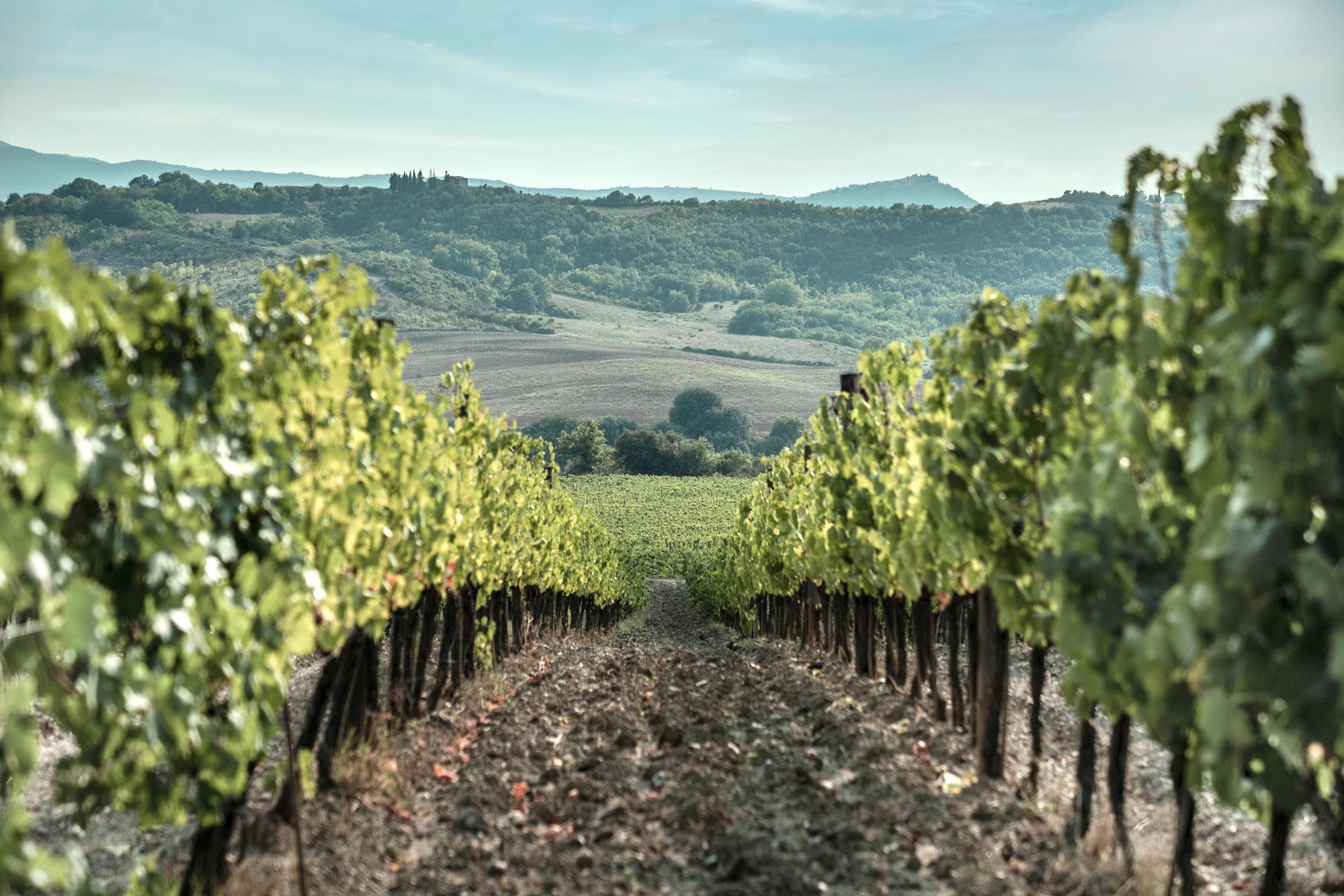
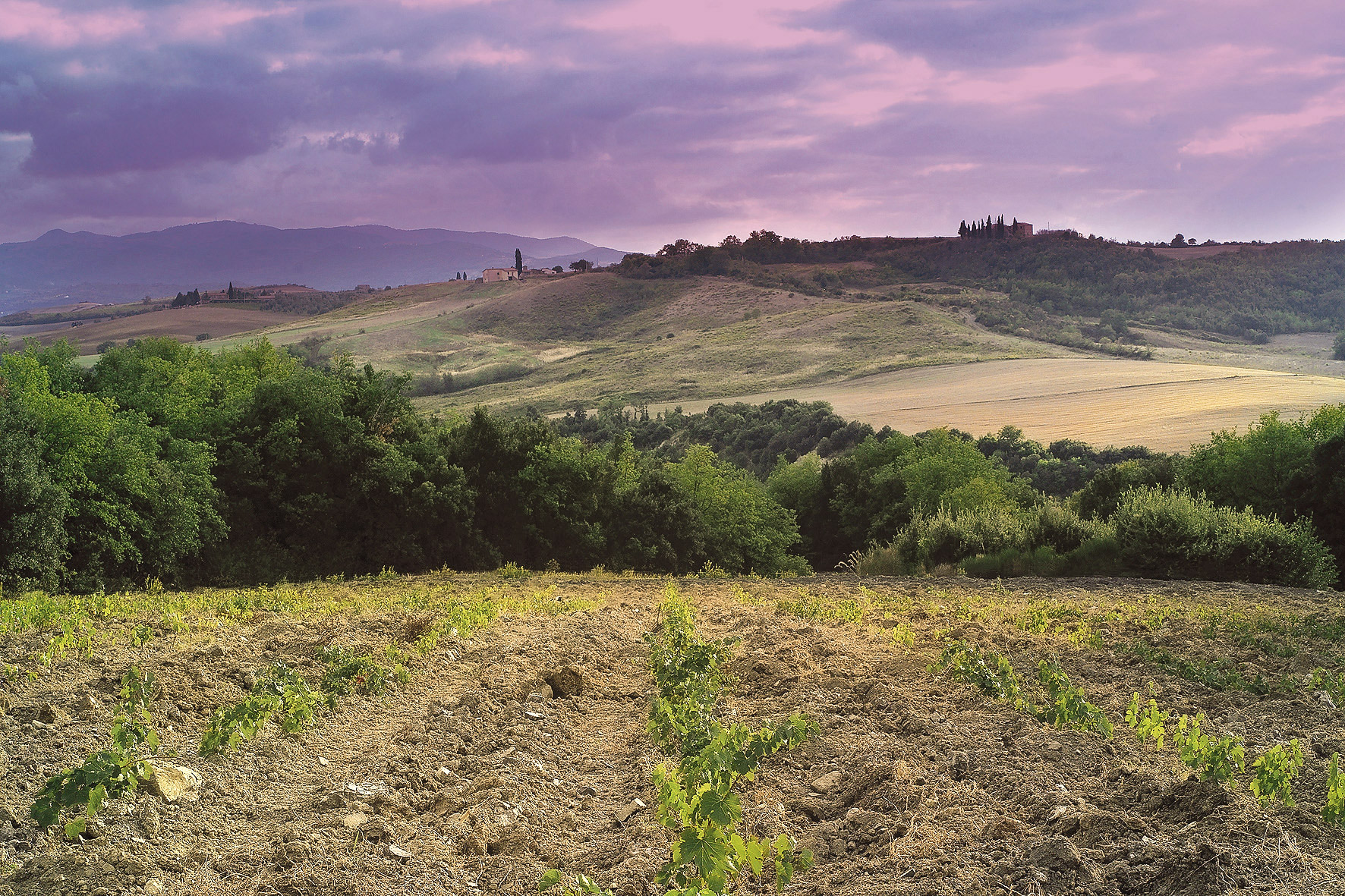
Many years ago agriculture here was biodynamic by definition. The soil was slowly tilled with a small plough, "coltrina", dragged by a pair of oxen. Olive trees, wheat and barley were grown on the land for men; hay and vetch for oxen and rabbits.
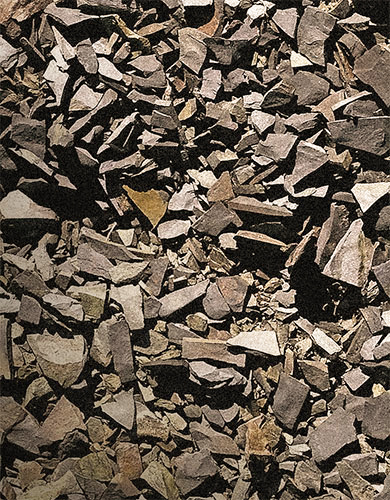
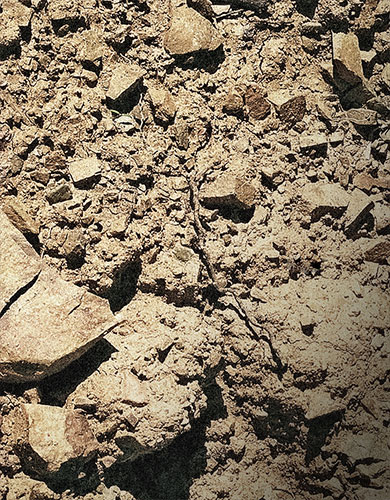
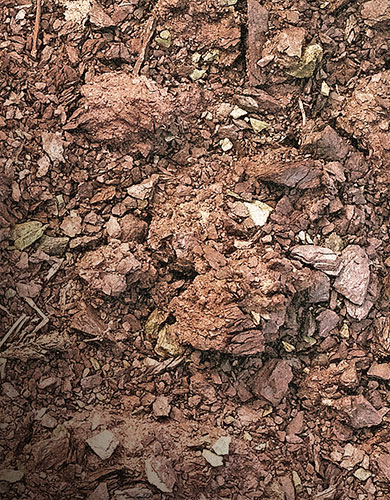
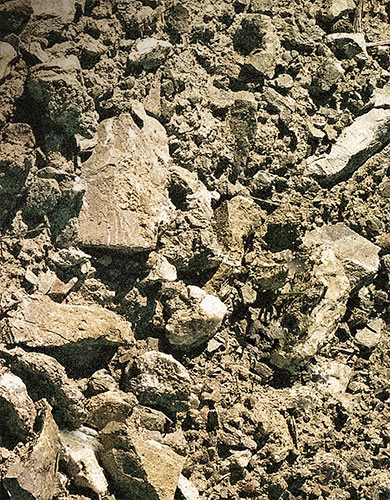
Galestro, calcite, clay, sand, iron and quartz: San Giuseppe's has 12 different soil types that radiate around the cellar. This is the reason why the single grape variety, Sangiovese, expresses itself in so many different ways, the wine changes with the variation of the genius loci. The specificity of the soil gives a unique character to each vineyard.
Our wines come from nine vineyards covering 7 hectares
- a1 – soils deriving from the alteration of the underlying lithotypes
- SIL – Santa Fiora formations (cretaceous high-palaeocene)
- PTfb – pelitic-arenaceous lithofacies (sandstone formations – high-cretaceous)
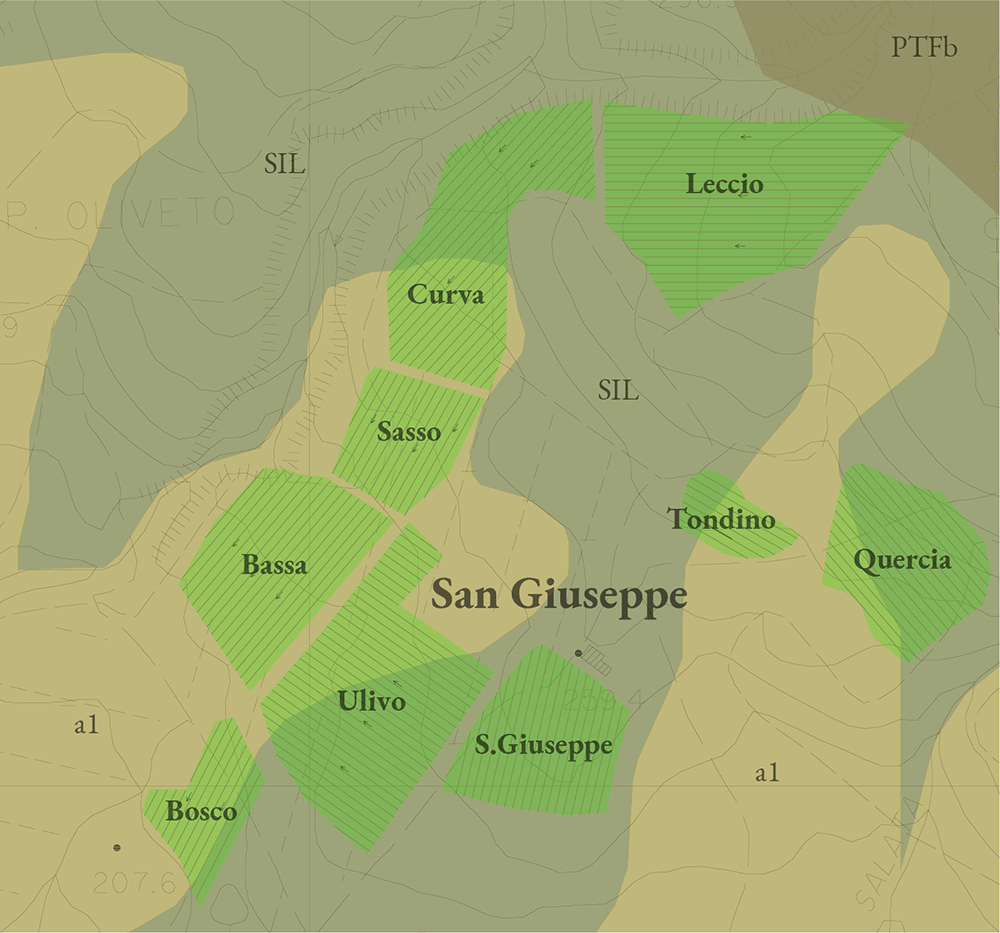
Slope exposure map
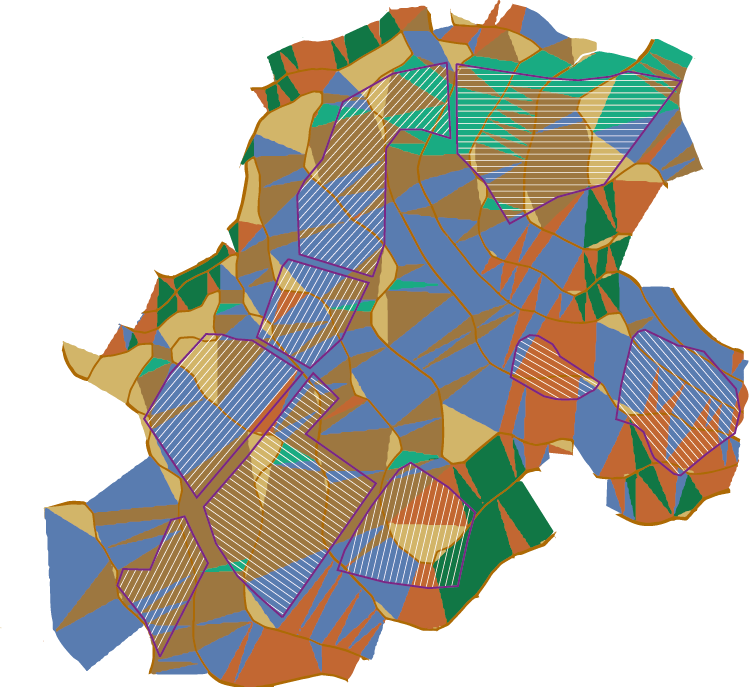
- Stella di Campalto vines
- Flat terrain
- South East
- South
- South West
- West
- North West
Leccio
-
Vineyard area: 1.8 ha
-
Year of planting: 1998
-
Variety: Sangiovese
-
Rootstock: 420A
-
Growing System: 2.5 x 0.8
-
Soil Texture: FL-FA
-
Average altitude: 290 m
-
Slope: 5°
-
Exposure: South
Curva
-
Vineyard area: 1.6 ha
-
Year of planting: 1998
-
Variety: Sangiovese
-
Rootstock: 420A
-
Growing System: 2.5 x 0.8
-
Soil Texture: F-FA
-
Average altitude: 260 m
-
Slope: 7°
-
Exposure: South
Sasso
-
Vineyard area: 0.4 ha
-
Year of planting: 1998
-
Variety: Sangiovese
-
Rootstock: 420A
-
Growing System: 2.5 x 0.8
-
Soil Texture: FA
-
Average altitude: 245 m
-
Slope: 8°
-
Exposure: South
Bassa
-
Vineyard area: 1 ha
-
Year of planting: 1998
-
Variety: Sangiovese
-
Rootstock: 1103P
-
Growing System: 2.5 x 0.8
-
Soil Texture: SLA
-
Average altitude: 225 m
-
Slope: 5°
-
Exposure: South West - South South West
Bosco
-
Vineyard area: 0.4 ha
-
Year of planting: 2003
-
Variety: Sangiovese
-
Rootstock: 1103P
-
Growing System: 2.5 x 0.8
-
Soil Texture: FA
-
Average altitude: 210 m
-
Slope: 4°
-
Exposure: South
Ulivo
-
Vineyard area: 1.3 ha
-
Year of planting: 2003
-
Variety: Sangiovese 0.9, allochthonous vines 0.4
-
Rootstock: 1103P
-
Growing System: 2.4 x 0.8
-
Soil Texture: AL-FA
-
Average altitude: 230 m
-
Slope: 3°
-
Exposure: South - South West
San Giuseppe
-
Vineyard area: 0.7 ha
-
Year of planting: 1992
-
Variety: Sangiovese
-
Rootstock: 1103P
-
Growing System: 3.0 x 1.0
-
Soil Texture: AL-FA
-
Average altitude: 250 m
-
Slope: 7°
-
Exposure: South - South West
Tondino
-
Vineyard area: 0.21 ha
-
Year of planting: 2019
-
Variety: Sangiovese
-
Rootstock: 1103P
-
Growing System: 2.7 x 0.9
-
Soil Texture: S-SL
-
Average altitude: 270 m
-
Slope: 2°
-
Exposure: West
Quercia
-
Vineyard area: 0.75 ha
-
Year of planting: 2019
-
Variety: Sangiovese
-
Rootstock: 1103P
-
Growing System: 2.7 x 0.9
-
Soil Texture: S-SL
-
Average altitude: 275 m
-
Slope: 5°
-
Esposizione: Sud Est
